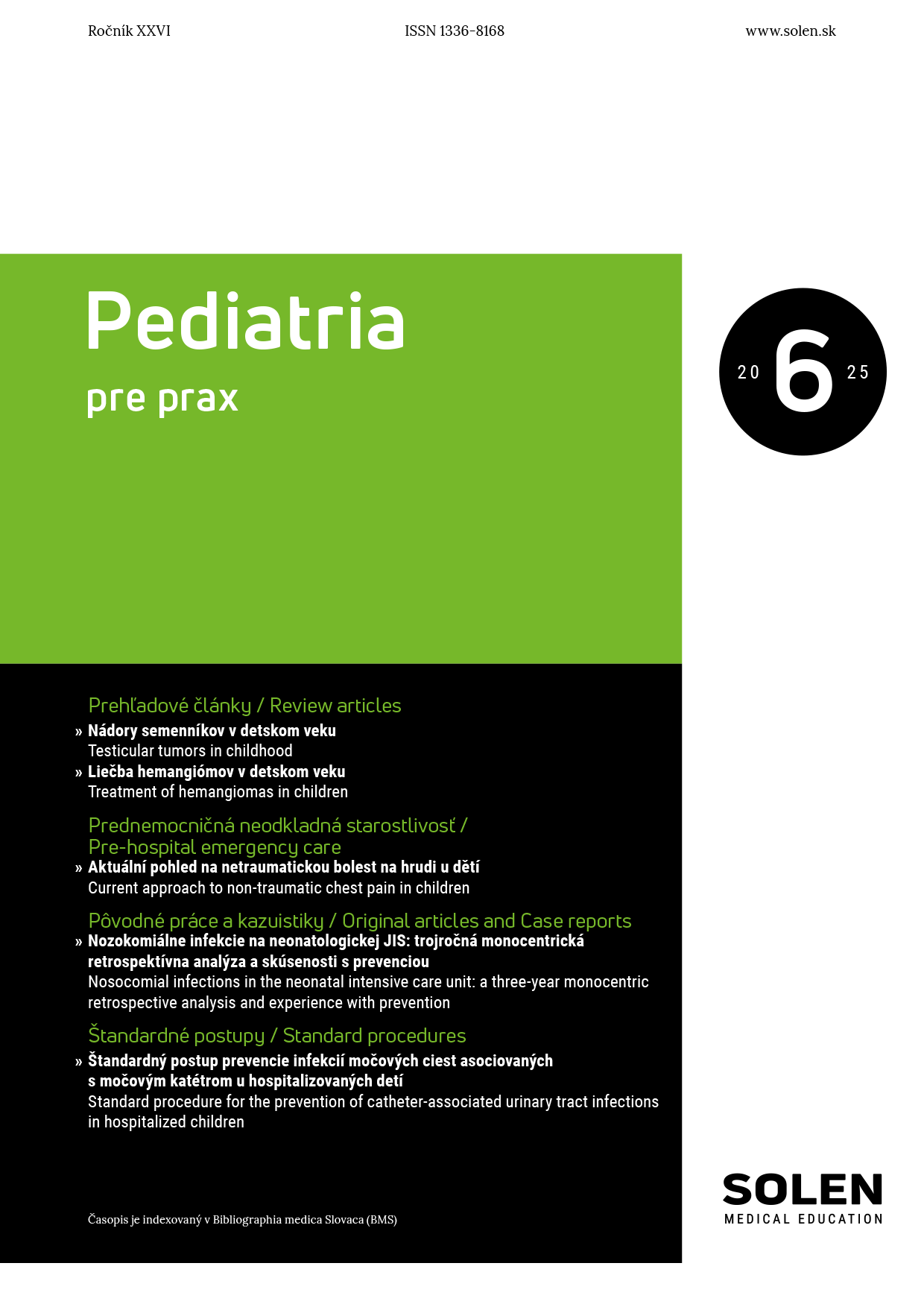Onkológia 5/2017
Efektívna liečba pľúcneho adenokarcinómu cielenými liekmi – kazuistika
Úvod: V liečbe nemalobunkového karcinómu pľúc posledné roky pribúdajú nové lieky. Pre liečbu ALK pozitívnych pľúcnych karcinómov sú v súčasnosti registrované tyrozínkinázové inhibítory alektinib, ceritinib a krizotinib. Ďalšiu skupinu liekov tvoria inhibítory angiogenézy, kde pribudli nintedanib a ramucirumab. Overené boli v druhej línii liečby. Nintedanib je orálny inhibítor angiogenézy. Je registrovaný aj kategorizovaný v SR, je ho možné indikovať spolu s docetaxelom u pacientov po prvolíniovej chemoterapii, u ktorých došlo k progresii ochorenia do 9 mesiacov od začatia prvolíniovej chemoterapie. Kazuistika: Autor prezentuje kazuistiku 56-ročnej pacientky s pľúcnym adenokarcinómom, iniciálne IIIb štádia liečeného chemorá- dioterapiou, u ktorej bola po metastatickom rozseve v následnej línii použitá kombinácia docetaxel plus nintedanib. Odpoveďou bola veľkostná stabilizácia, ale na PET/CT bola výrazná metabolická odpoveď. Čas do ďalšej progresie bol sedem mesiacov. Po progresii bola histologizáciou metastázy a genetickým vyšetrením zistená prítomnosť prestavby ALK génu. Pacientka je odvtedy liečená inhibítorom tyrozínkinázy ALK krizotinibom, doteraz liečba trvá 24 mesiacov. Záver: Prezentovaný prípad dokumentuje, ako sa až rebiopsiou po niekoľkých líniách liečby podarilo u pacientky uskutočniť genetické vyšetrenie a zistiť ALK prestavbu. Cielená liečba anti-ALK úspešne pomáha pacientke prežívať doteraz 24 mesiacov. Jednou z línií liečby, keď ešte nebola ALK pozitivita známa, bola kombinácia docetaxel plus nintedanib v trvaní sedem mesiacov do ďalšej progresie. Pacientka prežíva celkovo tri roky od metastatického rozsevu a sedem rokov od diagnostiky ochorenia.
Kľúčové slová: pľúcny adenokarcinóm, docetaxel plus nintedanib, prestavba ALK, cielená anti-ALK liečba
Effective treatment of lung adenocarcinoma with target therapy – case report
Introduction: In the last years new drugs were introduced to treatment options of non-small cell lung cancer. There are three registered anti-ALK tyrosinkinase inhibitors: alectinib, ceritinib and crizotinib. The other type of new drugs represent inhibitors of angiogenesis nintedanib and ramucirumab, which were studied in the second line of treatment. Nintedanib is oral inhibitor. In Slovakia it is registered and reimbursed in combination with docetaxel in lung adenocarcinoma after the first line chemotherapy with progression within nine months from start of the first line chemotherapy. Case: The author presents a case of 56-year old patient with lung adenocarcinoma, initially stage IIIb treated with chemoradiotherapy. After metastatic spread docetaxel plus nintedanib were introduced in the following line. The response was size stabilisation, PET/CT scan revealed a great metabolic response. Time to progression was seven months. After progression a biopsy of metastasis was carried out. Genetic analysis revealed rearrangement of ALK gene. The patient is treated with ALK inhibitor crizotinib, the treatment duration up to now is 24 months. Conclusion: Presented case documents how genetic profile setting could be difficult, it was feasible after several lines of treatment from rebiopsy and revealed ALK rearrangement. Target anti-ALK treatment helps patient to survive 24 months. Meanwhile ALK positivity was not recognised, one of the treatment line was combination of docetaxel plus nintedanib with the time to next progression of seven months. The patient survive three years from metastatic spread and seven years from diagnosis.
Keywords: lung adenocarcinoma, docetaxel plus nintedanib, ALK rearrangement, target anti-ALK treatment

















